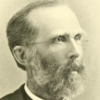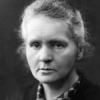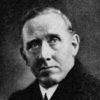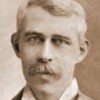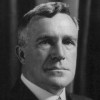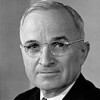All human accomplishment has the same origin, identically. Imagination is a force of nature. Is this not enough to make a person full of ecstasy? Imagination, imagination, imagination. It converts to actual. It sustains, it alters, it redeems!
Saul Bellow (1915-2005) Canadian-American writer
Henderson the Rain King, ch. 18 [King Dahfu] (1959)
(Source)
Quotations about:
accomplishment
Note not all quotations have been tagged, so Search may find additional quotes on this topic.
I don’t know that it’s an issue for anybody but me, but it’s true that nothing I did where the only reason for doing it was the money was ever worth it, except as bitter experience. Usually I didn’t wind up getting the money, either. The things I did because I was excited, and wanted to see them exist in reality have never let me down, and I’ve never regretted the time I spent on any of them.
Neil Gaiman (b. 1960) British author, screenwriter, fabulist
Speech (2012-05-17), Commencement, University of the Arts, Philadelphia [06:33]
(Source)
By diligence and patience, the mouse bit in two the cable.
Benjamin Franklin (1706-1790) American statesman, scientist, philosopher, aphorist
Poor Richard (1735 ed.)
(Source)
Life’s race well run,
Life’s work well done,
Life’s crown well won,
Now comes rest.Edward H. Parker (1823-1896) American physician, poet
Epitaph of President James Garfield (1881)
(Source)
The phrase was engraved on a tablet placed at the head of his coffin while he lay in state at Cleveland's Memorial Park.
The passage was selected by a committee without a clear source of the material, but it appears to be a loose transcription of the first stanza of a poem Parker wrote for his mother-in-law's funeral:
Life's race well run,
Life's work all done,
Life's victory won,
Now cometh rest.
The differences may be because the Garfield epitaph was back-translated from a Latin translation of Parker's original.
Much more discussion here.
When we look forward and try to project what may come out of a development, we are always wrong, because the by-products sometimes become far more important than the primary thing you started out to accomplish. Nevertheless, unintelligent motion is a great deal more important in research than intelligent standing still.
Charles F. Kettering (1876-1958) American inventor, engineer, researcher, businessman
“250 at Luncheon Honor Kettering,” New York Times (1936-11-11)
(Source)
All work is as seed sown; it grows and spreads, and sows itself anew.
Thomas Carlyle (1795-1881) Scottish essayist and historian
“Boswell’s Life of Johnson,” Critical and Miscellaneous Essays (1827-1855)
(Source)
Originally published in Fraser's Magazine, Vol 5, # 28 (1832). Reviewing a new 1831 edition of James Boswell, The Life of Samuel Johnson.
One never notices what has been done; one can only see what remains to be done.
Marie Curie (1867-1934) Polish-French physicist and chemist [b. Maria Salomea Skłodowska]
Letter to her brother Joseph (1894-03-18)
(Source)
As quoted in Eve Curie Labouisse, Madame Curie: A Biography, ch. 9 (1937) [tr. Sheean (1938)].
And why carry out one’s projects, since the project is sufficient pleasure in itself?
[Et à quoi bon exécuter des projets, puisque le projet est en lui-même une jouissance suffisante?]
Charles Baudelaire (1821-1867) French poet, essayist, art critic
Le Spleen de Paris (Petits Poèmes en Prose), No. 24 “Projects [Les Projets],” final words (1869) [tr. Varèse (1970)]
(Source)
(Source (French)). Alternate translations:
And what is the good of carrying out a project, when the project itself gives me pleasure enough?
[tr. Hamburger (1946)]
And what good is it to carry out plans, since planning itself is a sufficient delight?
[tr. Kaplan (1989)]
And what good would it do to execute such plans, since planning is in itself sufficient enjoyment?
[tr. Waldrop (2009)]
What good is it to accomplish projects, when the project itself is enjoyment enough?
[Various]
A vast deal may be done by those who dare to act.
The measure of achievement is not winning awards. It’s doing something that you appreciate, something you believe is worthwhile. I think of my strawberry souffle. I did that at least twenty-eight times before I finally conquered it.
The superior man in everything considers righteousness to be essential. He performs it according to the rules of propriety. He brings it forth in humility. He completes it with sincerity. This is indeed a superior man.
[君子義以為質,禮以行之,孫以出之,信以成之,君子哉]
Confucius (c. 551- c. 479 BC) Chinese philosopher, sage, politician [孔夫子 (Kǒng Fūzǐ, K'ung Fu-tzu, K'ung Fu Tse), 孔子 (Kǒngzǐ, Chungni), 孔丘 (Kǒng Qiū, K'ung Ch'iu)]
The Analects [論語, 论语, Lúnyǔ], Book 15, verse 18 (15.18) (6th C. BC – 3rd C. AD) [tr. Legge (1861), 15.17]
(Source)
(Source (Chinese)). Alternate translations, noting where Legge's numbering is used:
When the "superior man" regards righteousness as the thing material, gives operation to it according to the rules of propriety, lets it issue in humility, and become complete in sincerity, -- there indeed is your superior man!
[tr. Jennings (1895), 15.17]
A wise and good man makes Right the substance of his being; he cries it out with judgment and good sense; he speaks it with modesty; and he attains it with sincerity: -- such a man is a really good and wise man!
[tr. Ku Hung-Ming (1898), 15.17]
The noble man takes the Right as his foundation principle, reduces it to practice with all courtesy, carries it out with modesty, and renders it perfect with sincerity, -- such is the noble man.
[tr. Soothill (1910), 15.17]
When a princely man makes the Right his fundamental principle, makes Courtesy his rule in evolving it, Modesty his rule for exhibiting it, and Sincerity his rule for effectuating it perfectly, -- what a princely man he is!
[tr. Soothill (1910), 15.17, alternate]
The proper man gives substance to his acts by equity. He proceeds according to the rites, puts them forth modestly, and makes them perfect by sticking to his word. That's the proper man (in whom's the voice of his forebears).
[tr. Pound (1933), 15.17]
The gentleman who takes the right as his material to work upon and ritual as the guide in putting what is right into practice, who is modest in setting out his projects and faithful in carrying them to their conclusions, he indeed is a true gentleman.
[tr. Waley (1938), 15.17]
He whose very substance is justice; whose actions are governed by the rites; whose participation in affairs is compliant; and whose crowning perfection is truthfulness -- that man is a perfect gentleman.
[tr. Ware (1950)]
The gentleman has morality as his basic stuff and by observing the rites puts it into practice, by being modest gives it expression, and by being trustworthy in word brings it to completion. Such is a gentleman indeed!
[tr. Lau (1979)]
Righteousness the gentleman regards as the essential stuff and the rites are his means of putting it into effect. If modesty is the quality with which he reveals it and good faith is his method of bringing it to completion, he is indeed a gentleman.
[tr. Dawson (1993)]
A gentleman takes justice as his basis, enacts it in conformity with the ritual, expounds it with modesty, and through good faith, brings it to fruition. That is how a gentleman proceeds.
[tr. Leys (1997)]
A gentleman considers righteousness his major principle; he practices it in accordance with the rituals, utters it in modest terms, and fulfils it with truthfulness. A gentleman indeed!
[tr. Huang (1997)]
A gentleman takes the righteousness as his essence, practices with the rituals, words with modesty, and gets achievement with honesty. It is the gentleman.
[tr. Cai/Yu (1998), v. 402]
Having a sense of appropriate conduct [yi] as one's basic disposition [zhi], developing it in observing ritual propriety [li], expressing it with modesty, and consummating it in making good on one's word [xin]; this then is an exemplary person [junzi].
[tr. Ames/Rosemont (1998)]
If a gentleman has right as his substance, and puts it in practice with propriety, promulgates it with lineality, and brings it to a conclusion with fidelity, he is a gentleman indeed!
[tr. Brooks/Brooks (1998), LY17 c0270 addition]
The noble-minded make Duty their very nature. They put it into practice through Ritual; they make it shine through humility; and standing by their words, they perfect it. Then they are noble-minded indeed!
[tr. Hinton (1998)]
The gentleman takes rightness as his substance, puts it into practice by means of ritual, gives it expression through modesty, and perfects it by being trustworthy. Now that is a gentleman!
[tr. Slingerland (2003)]
The gentleman makes rightness the substance, practices it through ritual, displays it with humility, brings it to completion with trustworthiness. That’s the gentleman.
[tr. Watson (2007)]
The gentleman makes rightness the substance. He works at it through ritual propriety; he expresses it with modesty; he brings it to completion by being trustworthy. Now that is a gentleman!
[tr. Annping Chin (2014)]
A Jun Zi regards righteousness and honor as fundamental bases, acts in line with Li, shows humility, delivers promises, and completes contracts with sincerity and trust. If so, he is indeed a Jun Zi.
[tr. Li (2020)]
A leader takes rightness as their essence, puts it into practice through ritual, manifests it through humility, and brings it to fruition through trustworthiness. This is how a leader behaves.
[tr. Brown (2021)]
As a field, though fertile, cannot yield a harvest without cultivation, no more can the mind without learning.
[Ut ager quamvis fertilis sine cultura fructuosus esse non potest, sic sine doctrina animus.]
Marcus Tullius Cicero (106-43 BC) Roman orator, statesman, philosopher
Tusculan Disputations [Tusculanae Disputationes], Book 2, ch. 5 (2.5) / sec. 13 [Marcus] (45 BC) [tr. Peabody (1886)]
(Source)
Often rendered in reverse order: "A mind without instruction can no more bear fruit than can a field, however fertile, without cultivation." (e.g., 1906). Original Latin. Alternate translations:
As a Field, though it be Fruitful, without Tillage cannot bring a good Crop, so the Soul without Learning.
[tr. Wase (1643)]
As the field naturally fruitful cannot produce a crop, without dressing, so neither can the mind, without improvement.
[tr. Main (1824)]
As the field, however fertile, cannot be fruitful without culture, so with the mind, without learning.
[tr. Otis (1839)]
As a field, although it may be naturally fruitful cannot produce a crop, without dressing, so neither can the mind, without education.
[tr. Yonge (1853)]
Just as a field however fertile cannot be fruitful without cultivation, neither can the soul without instruction.
[tr. Douglas (1990)]
Just as a field, however fertile, cannot be productive without cultivation, so the soul cannot be without teaching.
[tr. Davie (2017)]
There are so many things that we wish we had done yesterday, so few that we feel like doing today.
Mignon McLaughlin (1913-1983) American journalist and author
The Second Neurotic’s Notebook, ch. 10 (1966)
(Source)
Do the best you can where you are; and, when that is accomplished, God will open a door for you, and a voice will call, “Come up hither into a higher sphere.”
Henry Ward Beecher (1813-1887) American clergyman and orator
Life Thoughts [ed. E. Proctor] (1858)
(Source)
The real and lasting victories are those of peace and not of war.
Ralph Waldo Emerson (1803-1882) American essayist, lecturer, poet
“Worship,” The Conduct of Life, ch. 6 (1860)
(Source)
Every man is in some sort a failure to himself. No one ever reaches the heights to which he aspires.
When I go into my garden with a spade and dig a bed, I feel such an exhilaration and health, that I discover that I have been defrauding myself all this time in letting others do for me what I should have done with my own hands.
Ralph Waldo Emerson (1803-1882) American essayist, lecturer, poet
“Man the Reformer,” lecture, Boston (1841-01-25)
(Source)
A person who has not done one half his day’s work by ten o’clock runs a chance of leaving the other half undone.
Emily Brontë (1818-1848) British novelist, poet [pseud. Ellis Bell]
Wuthering Heights, ch. 7 (1847) [Nelly]
(Source)
It is not yours to finish the task, but neither are you free to set it aside.
Tarfon (fl. 1st-2nd C AD) Jewish rabbi, sage
Mishnah, Pirkei Avot 2:15-16
Alt. trans.:
- It is not incumbent upon you to finish the task, but neither are you free to absolve yourself from it.
- It is not up to you to finish the task, but you are not free to avoid it.
- We need not finish the task but neither can we desist from it.
- Although I am not free to avoid doing the work, it is not always necessary that I finish the task.
- You are not obligated to complete the work, but neither are you free to abandon it.
You should make something. You should bring something into the world that wasn’t in the world before. It doesn’t matter what it is. It doesn’t matter if it’s a table or a film or gardening — everyone should create. You should do something, then sit back and say, “I did that.”
Ricky Gervais (b. 1961) English comedian, actor, director, writer
Interview with Scott Raab, Esquire (12 Jan 2012)
(Source)
Variant: "If you spend your days doing what you love, it is impossible to fail. So I go about my days trying to bring something into the world that wasn’t in the world before. And then everyone gets furious about it. And then I sit back and say, 'I did that!'" [Biography interview (11 Jan 2016)]
You should show the least vanity about your greatest gifts. Content yourself with doing: leave saying to others.
[Afecte menos sus mayores eminencias. Conténtese con hacer, y deje para otros el decir.]
Baltasar Gracián y Morales (1601-1658) Spanish Jesuit priest, writer, philosopher
The Art of Worldly Wisdom [Oráculo Manual y Arte de Prudencia], § 295 (1647) [tr. Maurer (1992)]
(Source)
(Source (Spanish)). Alternate translations:
Shew as little as thou canst thy most eminent qualities. Rest satisfied to doe, and leave it to others to talk of it.
[Flesher ed. (1685)]
The greater your exploits the less you need affect them: content yourself with doing, leave the talking to others.
[tr. Jacobs (1892)]
Real achievement needs no such affectation. Rest in accomplishment, and leave talk to others. Do, and do not brag.
[tr. Fischer (1937)]
Make the least ado about your greatest gifts. Be content to act, and leave the talking to others.
[Source]
The Difficult is that which can be done immediately; the Impossible is that which takes a little longer.
George Santayana (1863-1952) Spanish-American poet and philosopher [Jorge Agustín Nicolás Ruíz de Santayana y Borrás]
(Attributed)
Quoted in Reader's Digest (Nov 1939), but without citation. The sentiment has a number of antecedents (see discussion here).
Every great improvement has come after repeated failures. Virtually nothing comes out right the first time. Failures, repeated failures, are finger posts on the road to achievement. One fails forward toward success.
Charles F. Kettering (1876-1958) American inventor, engineer, researcher, businessman
(Attributed)
(Source)
The world is divided into people who do things and people who get the credit. Try, if you can, to belong to the first class. There’s far less competition.
Can anything be sadder than work left unfinished? Yes: work never begun.
Christina Rossetti (1830-1894) English poet
Time Flies: A Reading Diary, “January 5” (1886)
(Source)
There are many who find a good alibi far more attractive than an achievement. For an achievement does not settle anything permanently. We still have to prove our worth anew each day: we have to prove that we are as good today as we were yesterday. But when we have a valid alibi for not achieving anything we are fixed, so to speak, for life. Moreover, when we have an alibi for not writing a book, painting a picture, and so on, we have an alibi for not writing the greatest book and not painting the greatest picture. Small wonder that the effort expended and the punishment endured in obtaining a good alibi often exceed the effort and grief requisite for the attainment of a most marked achievement.
Eric Hoffer (1902-1983) American writer, philosopher, longshoreman
The Passionate State of Mind, Aphorism 181 (1955)
(Source)
There is no limit to what a man can do so long as he does not care a straw who gets the credit for it.
Charles Edward "C. E." Montague (1867-1928) English journalist, novelist, essayist
“Any Cure?” sec. 3, Disenchantment (1922)
(Source)
Montague did not take credit for the phrase, referring to it as a saying.
This was not the first time Montague used the phrase. In a memoir about journalist William T. Arnold in 1906, he stated that a phrase that "someone has said" was a particular favorite of Arnold's: "There is no limit to what a man can do who does not care who gains the credit for it."
More discussion of the quote and its origins: A Man May Do an Immense Deal of Good, If He Does Not Care Who Gets the Credit – Quote Investigator. See also Truman.
Like it or not we live in interesting times. They are times of danger and uncertainty; but they are also more open to the creative energy of men than any other time in history. And everyone here will ultimately be judged — will ultimately judge himself — on the effort he has contributed to building a new world society and the extent to which his ideals and goals have shaped that effort.
Robert Francis Kennedy (1925-1968) American politician
“Day of Affirmation,” address, University of Capetown, South Africa (6 Jun 1966)
(Source)
You can’t do the biggest things in this world unless you handle men; and you can’t handle men if you’re not in sympathy with them; and sympathy begins in humility.
George Horace Lorimer (1867-1937) American journalist, author, magazine editor
Old Gorgon Graham: More Letters from a Self-Made Merchant to His Son, ch. 12 (1903)
(Source)
Promise little, and do much; so shalt thou have Thanks.
Thomas Fuller (1654-1734) English physician, preacher, aphorist, writer
Introductio ad Prudentiam, Vol. 1, # 111 (1725)
(Source)
Jenny kissed me when we met,
Jumping from the chair she sat in;
Time, you thief, who love to get
Sweets into your list, put that in:
Say I’m weary, say I’m sad,
Say that health and wealth have missed me,
Say I’m growing old, but add,
Jenny kissed me.Leigh Hunt (1784-1859) English critic, essayist, poet, writer [James Henry Leigh Hunt]
“Jenny Kissed Me” (1838)
Though Hunt called it "rondeau" (and that is sometimes given as its title), it is not, in fact, a rondeau.
Widely republished, the punctuation (and occasional italics) of the poem vary between most reprintings.
The "Jenny" is said to be Jane Welsh Carlyle, wife of Thomas Carlyle. The embrace, in some retellings, was in gratitude for Hunt's sonnet, "On a Lock of Milton's Hair." In others it was because he brought the news that her husband had been awarded a £300 pension by the British government. In still others, it was because Hunt had been absent for so long and showed up unexpectedly.
The poem is often said to have been published in an 1838 edition of the Monthly Chronicle, but an article in American Notes and Queries (1889-11-02), quoting the Chicago Dial, says that the poem published in the November 1838 edition of Monthly Chronicle, after the (unnamed?) author discusses a desire to publish a rondeau "which was written on a real occasion," is slightly different:
Nelly kiss'd me when we met,
Jumping from the chair she sat in;
Time, you thief! who love to get
Sweets into your list, put that in.
Say I'm jaundic'd, say I'm sad,
Say that health and wealth have miss'd me,
Say I'm growing old, but add
Nelly kiss'd me.
Whether this was initial reticence to mention an actual acquaintance, or a matter of Hunt later changing the actual name and others inferring that that it referred to the wife of his friend, will likely never be known.
No pain, no palm;
No thorns, no throne;
No gall, no glory;
No cross, no crown.William Penn (1644-1718) English writer, philosopher, politician, statesman
“No Cross, No Crown” (1682)
Originally written while a prisoner in the Tower of London (1668-69). See Quarles (1821).
Some are very busy, and yet do nothing.
Thomas Fuller (1654-1734) English physician, preacher, aphorist, writer
Gnomologia: Adages and Proverbs, #4211 (1732)
(Source)
Not failure, but low aim, is crime.
James Russell Lowell (1819-1891) American diplomat, essayist, poet
“For an Autograph,” st. 5 (1868)
(Source)
There are two great rules in life, the one general and the other particular. The first is that every one can in the end get what he wants if he only tries. This is the general rule. The particular rule is that every individual is more or less of an exception to the general rule.
Samuel Butler (1835-1902) English novelist, satirist, scholar
The Note-Books of Samuel Butler (1912)
(Source)
It is amazing what you can accomplish if you do not care who gets the credit.
Harry S Truman (1884-1972) US President (1945-1953)
(Spurious)
There is nothing contemporary to Truman indicating this is a valid quotation of his. The earliest instance of crediting Truman seems to be by Hugh Sidey in Time (7 Nov 1988).
A variant of this quote was also attributed to Ronald Reagan, apparently due to a plaque he kept in his office:
There is no limit to what a man can do or where he can go if he does not mind who gets the credit.
More discussion of the quote and its actual origins going back to 1863: A Man May Do an Immense Deal of Good, If He Does Not Care Who Gets the Credit – Quote Investigator. See also Montague.
We judge ourselves by what we feel capable of doing, while others judge us by what we have already done.




